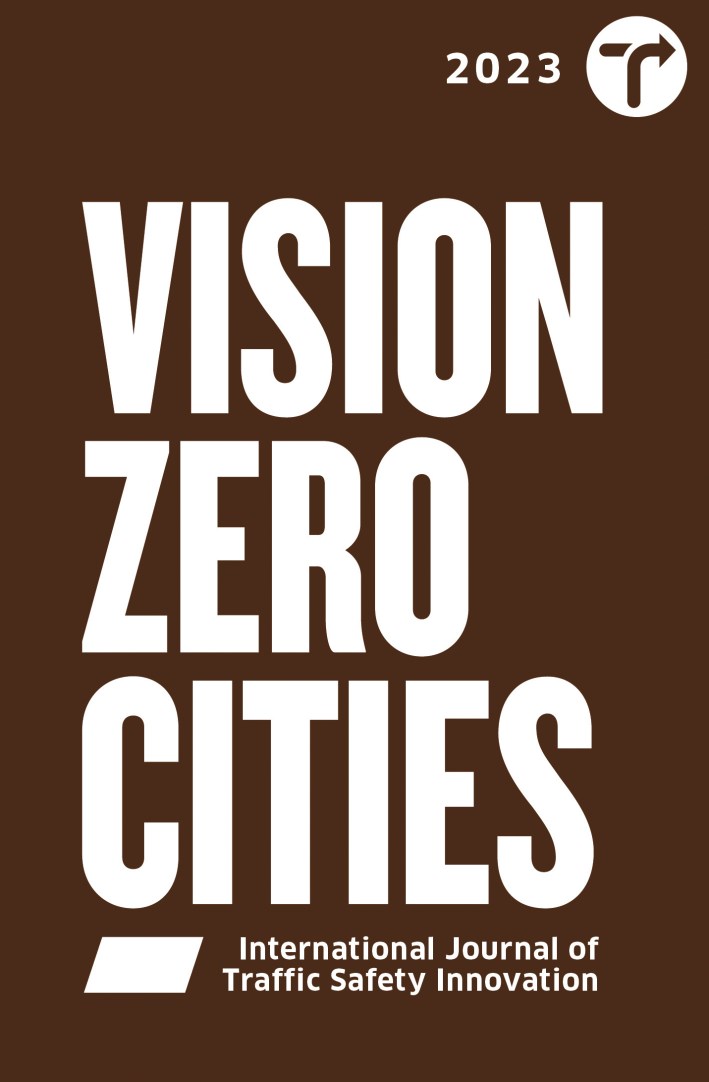Humans are often creatures of habit, finding comfort in the familiar and resisting change. Yet we have a tremendous capacity to adapt. The Wales Roads Review – an unprecedented examination of whether investment in over fifty local road schemes should continue – signals high-profile change by the Welsh Government, prompted by the climate emergency.

With national policy in Wales strongly oriented towards stewardship of the future, a panel of experts was asked by the Deputy Minister for Climate Change in 2021 to review policy compliance of the pipeline of road schemes making their way towards potential construction. With many of the schemes halted by the Government on the advice of the Panel – of 59 projects considered in the past two years, only 15 are going forward as planned – the initiative throws down a challenge globally for a change of mindset and investment focus when it comes to roads and their place in supporting society.
Three million people live in Wales, driving over 1.5 million cars. Roads in Wales, and across the world, are integral to the economic and social functioning of society. Mass motorisation in the last century led to the belief that economic activity and road traffic are coupled: when one grew, so would the other. Accordingly, the approach to ensuring economic prosperity has been to invest in roads to provide connectivity, the lifeblood of a prosperous society. It has become second nature: where roads suffer congestion or new developments require connectivity, new road capacity for private cars has been the solution.
This has meant global greenhouse gas emissions associated with the construction and use of new infrastructure have skyrocketed: the use of roads around the world alone accounts for around 15% of all global carbon dioxide emissions. Climate change has extreme consequences for future generations if left unaddressed. Growing levels of motor traffic on expanding road networks have also resulted in more immediate human costs – around 1.3 million people each year lose their lives because of road traffic crashes.
We must decarbonise rapidly – in half by the end of this decade and completely by 2050 – if we are to keep global warming in check. Road transport is critical to this undertaking, but while zero-emission vehicles will help significantly, they are not enough and they are not likely to come fast enough. To address both the climate crisis and road safety concerns, we must reduce road traffic. This is why the Welsh Government has set a target for a 10% reduction in car distance travelled per person in Wales by 2030 and brought into question the case for building new roads that increase car capacity.
Rethinking connectivity
Back early in the 1980s, connectivity was provided by proximity. Now, we have digital connectivity – supporting work, learning, shopping, socialising, and play regardless of one’s location. Since the mid-1990s, UK economic output (and that of other OECD countries) has ‘decoupled’ from growth in road traffic as the traffic intensity of economic output has gone down, and prosperity no longer seems as dependent upon physical access.
Wales and other countries now access people, employment, goods, and services through a variety of means: physical motorised mobility using the transport system, spatial proximity and active travel where enabled by the land use system, and digital connectivity through the telecommunications system. Taken together, this has been called the Triple Access System.
The COVID-19 pandemic demonstrated how adaptive people can be and the resilience of connectivity provided by the Triple Access System. The most dramatic change was the unprecedented increase in working from home. Accordingly, going forwards, the Welsh Government has set a target for 30% of people to be regularly working from home.
Future connectivity
We need a connected, prosperous, and environmentally responsible Wales (and world), that is not as dependent upon road traffic to fulfil connectivity requirements. A growing share of those requirements can and must now be met by a combination of more efficient movement of people by road (including by public transport), movement of people by rail, greater reliance on active travel for local journeys, and the substitution of some motorised journeys by digital connectivity.
Overcoming instincts
When roads grow congested, providing more car capacity can be compelling, but although increasing capacity may resolve the immediate problem, it can exacerbate problems in the longer term by attracting more traffic from latent or induced demand. Roads do not simply serve society, they shape it.
Road traffic forecasts often indicate an intensification of the problem if no action is taken, but consistently fail to live up to outturn traffic levels. Future traffic levels are a product of both how society is changing and how the transport system is changed. The instinct to build our way out of congestion needs to be resisted and replaced with an instinct to reduce reliance on motorised traffic for access.
Turning the tide
Decarbonising transport worldwide is necessary to slow the global shifts in climate, but this change must inevitably be local to us all. Such change may understandably be resented by some where proposed road capacity-increasing schemes no longer go forwards as previously intended. Attention instead, therefore, must be turned to alternative local investments to help communities adapt in the absence of such schemes.
Significant in the scheme of things
These issues above are not easy to come to terms with, especially when they feel and are very real and proximate to many concerned. The climate emergency, meanwhile, is even more challenging to come to terms with and often may feel more remote. Nevertheless, collective action is needed to confront it.
There is a strong temptation to take a ‘de minimis’ view when considering these two scales of issue together. Surely a local or regional road scheme has an insignificant effect on global carbon dioxide emissions? Why not make an important concession on this occasion when it will hardly affect the bigger picture? Yet if this view were taken for all situations locally and regionally, the national and global problems would persist, ultimately at a cost to people locally everywhere. Change has to start somewhere: in the case of Wales, following the cancellation of the M4 relief road in 2019, the Roads Review has pointed to where that change must begin – where road capacity increases for cars are no longer the appropriate solution.
The Review’s recommendations
The Wales Roads Review gave specific advice on the pipeline of roads projects in Wales and set out four purposes and four conditions for road building. The purposes are to shift trips to sustainable transport, reduce casualties, adapt to climate change, and access developments with sustainable transport. The conditions are to not increase car capacity, minimise construction carbon, not lead to higher vehicle speeds which then increase emissions, and not adversely affect the environment.
Conclusion
There is an important part to be played in evolving our road networks. The importance of how road capacity is used – distinct from how much capacity is available – should also come more strongly to the fore in the context of helping connect people and goods to places.
The Roads Review is not intended to be a threat to local, regional, and national prosperity but an opportunity for change, change that can and must be embraced on the road ahead.






